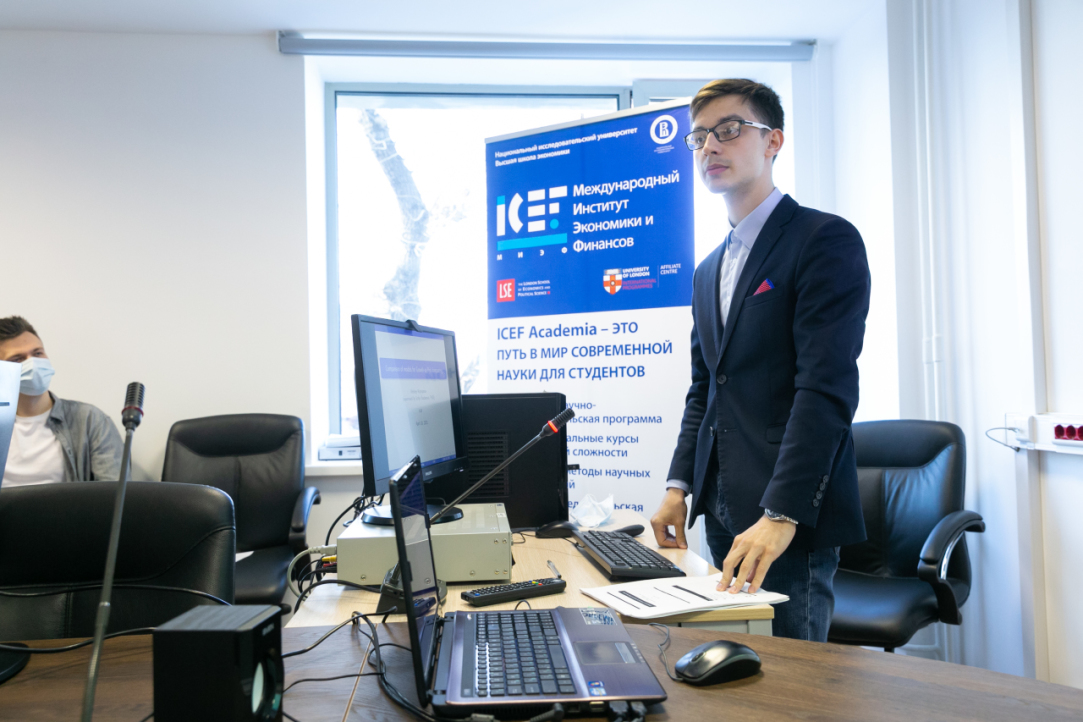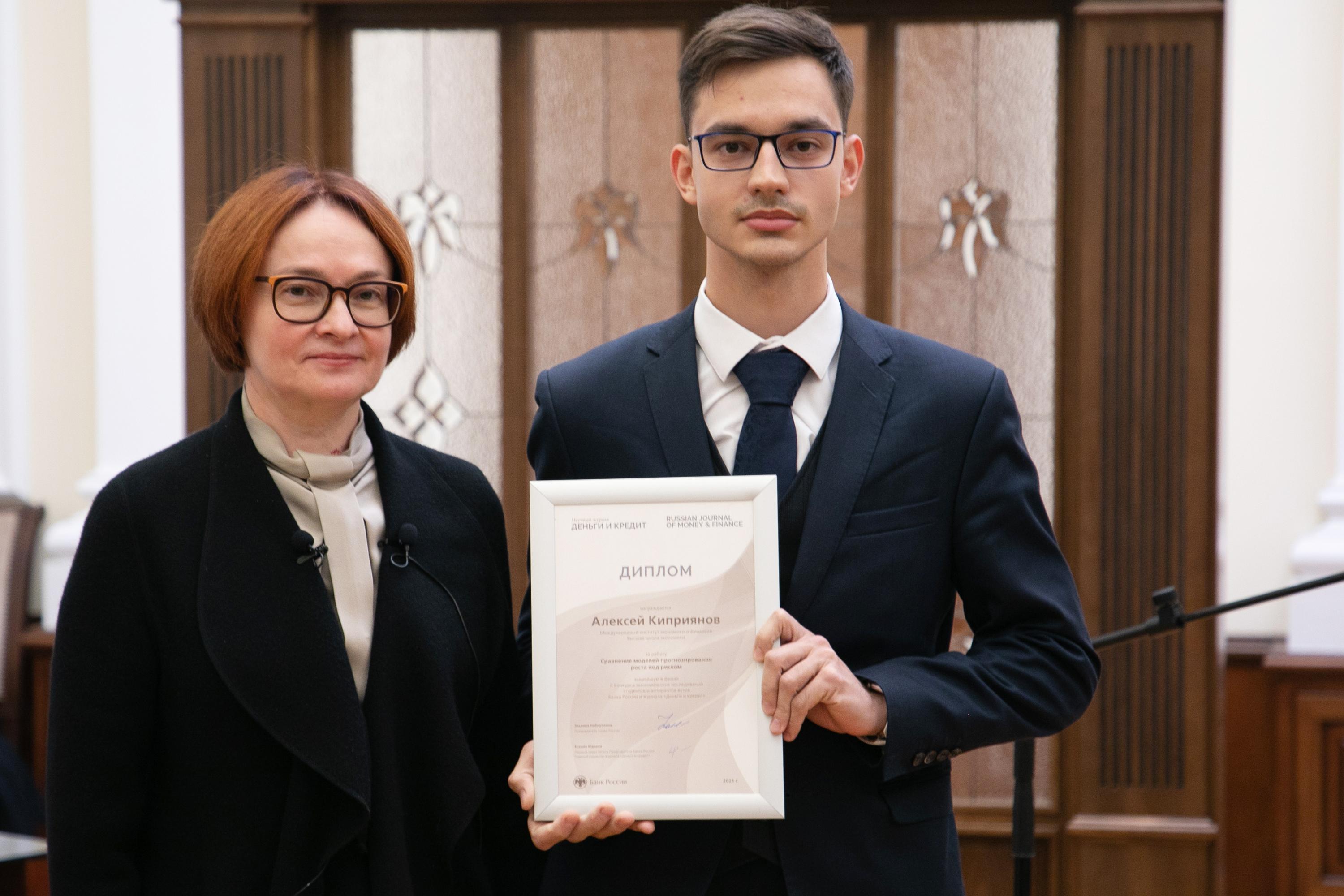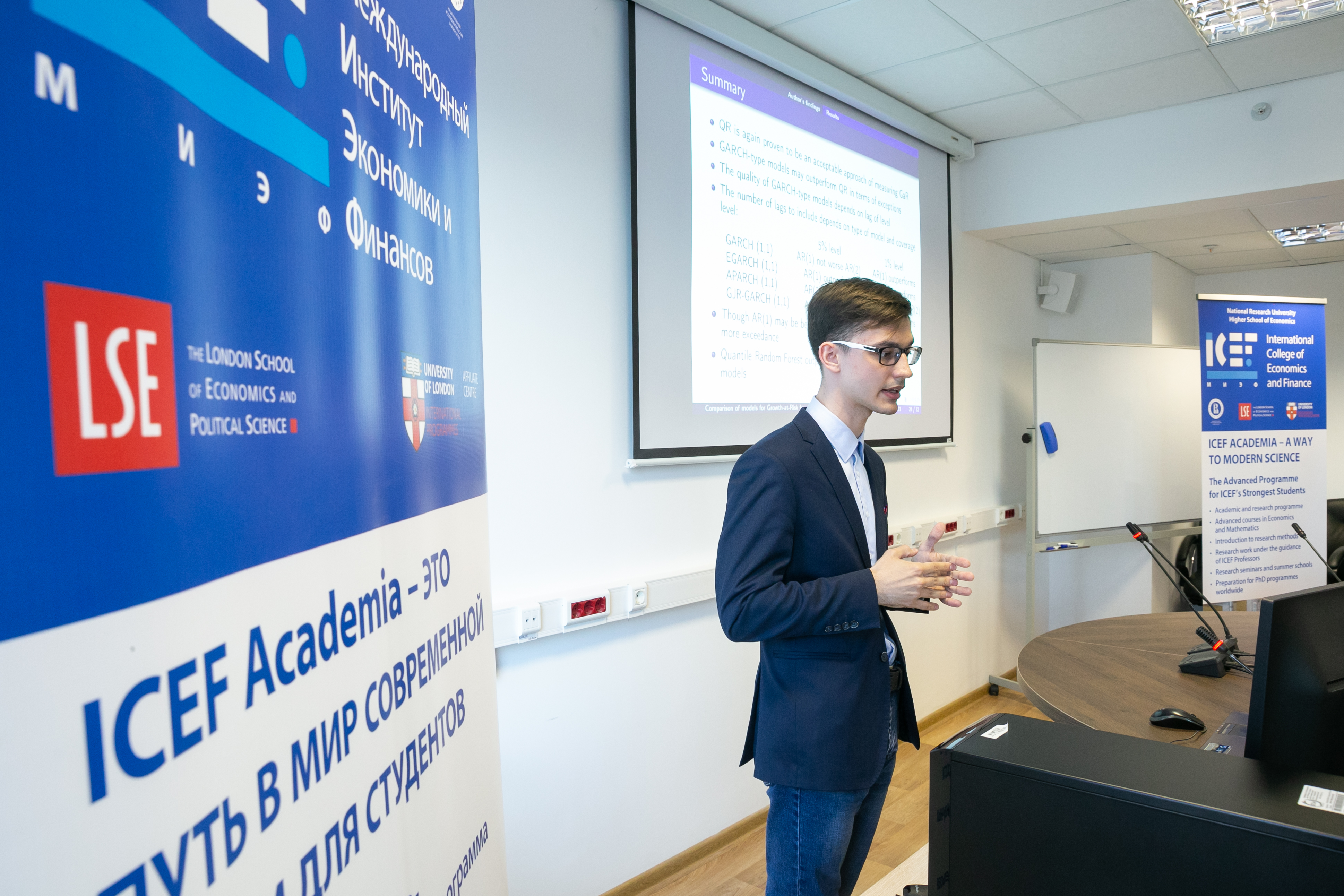"My Master’s Studies Have Opened Up New Horizons for My Research"

After earning his bachelor’s from ICEF in 2021, Alexey Kipriyanov enrolled in MSc Financial Economics. With top position in the student rating, Alexey is currently in his second year and combines his study with teaching undergraduate courses. Here’s why he chose to pursue his master’s, what applicants need to be aware of, and how students can benefit from teaching.
About choosing a master’s programme
There were two things that mattered most. My master’s had to be a logical extension of my previous economics education, and it had to be in-depth enough to make me a professional economist. Frankly speaking, I was choosing between HSE ICEF and NES. Why did I choose HSE? Because I knew what to expect, who would be my teachers, and that I’d be able to combine my studies with work – I accepted the offer to teach courses to ICEF’s class of bachelor’s students, which, given the high workload, can be difficult to combine with studies. But, the decisive factor was my conversation with Sofia Budanova, my research supervisor, who dispelled all my doubts about the programme.

Applying for the master’s in my fourth year as an undergraduate student turned out a simple procedure: I opted for early admission track. Having prepared my package of documents, that included academic transcripts, letters of recommendation, etc., I sat the IELTS test and applied the programme to receive my invitation in mid-December. I strongly advise all applicants to opt for early admission because it works and can spare you the insecurity of your future.
How MSc Financial Economics complements undergraduate studies
ICEF’s bachelor’s programme teaches a wide range of courses that span linear algebra, differential calculus, financial reporting, audit, history of science and philosophy, data science, and econometrics. This explains why some of its graduates may have a feeling they have acquired too much knowledge but still don’t have a profound understanding.
When the task is to provide grounding, cultivating more profound understanding is left to master’s studies
I had a long list of questions to be answered. Have I received the answers? I surely have. But now my list of questions is even longer, and my studies for the master’s degree have opened up new horizons for my research.
What prerequisite knowledge MSc Financial Economics requires
My biggest advice to applicants is to not be afraid if you feel you’re lacking knowledge. Even if you’re completely new to economics and have never read a book about it, MSc Financial Economics help you figure things out. Our teachers are top level professionals and will be there to guide you throughout your journey. You just need to have the willingness to tackle new material and ask for help. Someone with a background mathematics or economics will certainly have it easier, but if you are eager to get new knowledge and have people to help you, you can achieve a lot.
It is advisable to have the knowledge of statistics, mathematical analysis and math skills in general, as ICEF’s master’s programme involves a wide use of mathematical tools for the analysis of economic phenomena. However, this should not be seen as a barrier by people with liberal arts education: your first month will be spent studying the basics and techniques for successful training. Applicants who are new to economics and higher mathematics are advised to do the programme’s bridge course.
About the programme’s strengths
MSc Financial Economics is a very succinct programme. Covering the core areas of economics, it gives more profound knowledge than is offered by ICEF’s bachelor’s degree. It is worth to note that we are being taught advanced research techniques, which is not surprising as the majority of our teachers do economic research and have their papers published in top international journals.
Master’s study requires a lot of time and energy, but in the end the word impossible will not exist for you anymore
I can’t say my view of career horizons has changed a lot during my study. One thing I know for sure is that I need my future employer to give me exposure to intellectually demanding tasks.
About the academic opportunities
Research forms an integral part of ICEF’s master’s programme. There is coursework to produce and master’s thesis, which both imply research work. Almost every course involves doing a little study, so there’s plenty of opportunities to practice one’s academic skills. The students are free to present their studies at either of ICEF’s conferences, traditionally held in autumn and spring, where they can get feedback from the faculty for better research performance. Scientific seminars take place throughout the year, a wonderful opportunity for students to exchange research results and experience.

In my first year as a master’s student, I finalized my previous thesis, titled “Comparison of models for Growth-at-Risk forecasting”, and had it published in the Bank of Russia’s Russian Journal of Money & Finance. My master’s thesis explores Europe’s short selling ban of 2020, and I am currently writing an article on this topic.
About the lecturing experience
Lecturing is first and foremost self-education, but at a very serious level. You can’t be able to explain the material to students if you don’t understand it. The benefits are therefore self-evident. A less visible, but no less important, benefit of lecturing lies in soft skills. When you communicate with more than a hundred students every week, each of whom is a unique personality, you begin to understand people much better. You become able to read people’s moods in a split second and you know if they get your message or not. Lecturing is about communication and feedback. Students come to classes not only for knowledge, but also to exchange experience, which makes teaching a two-way process.